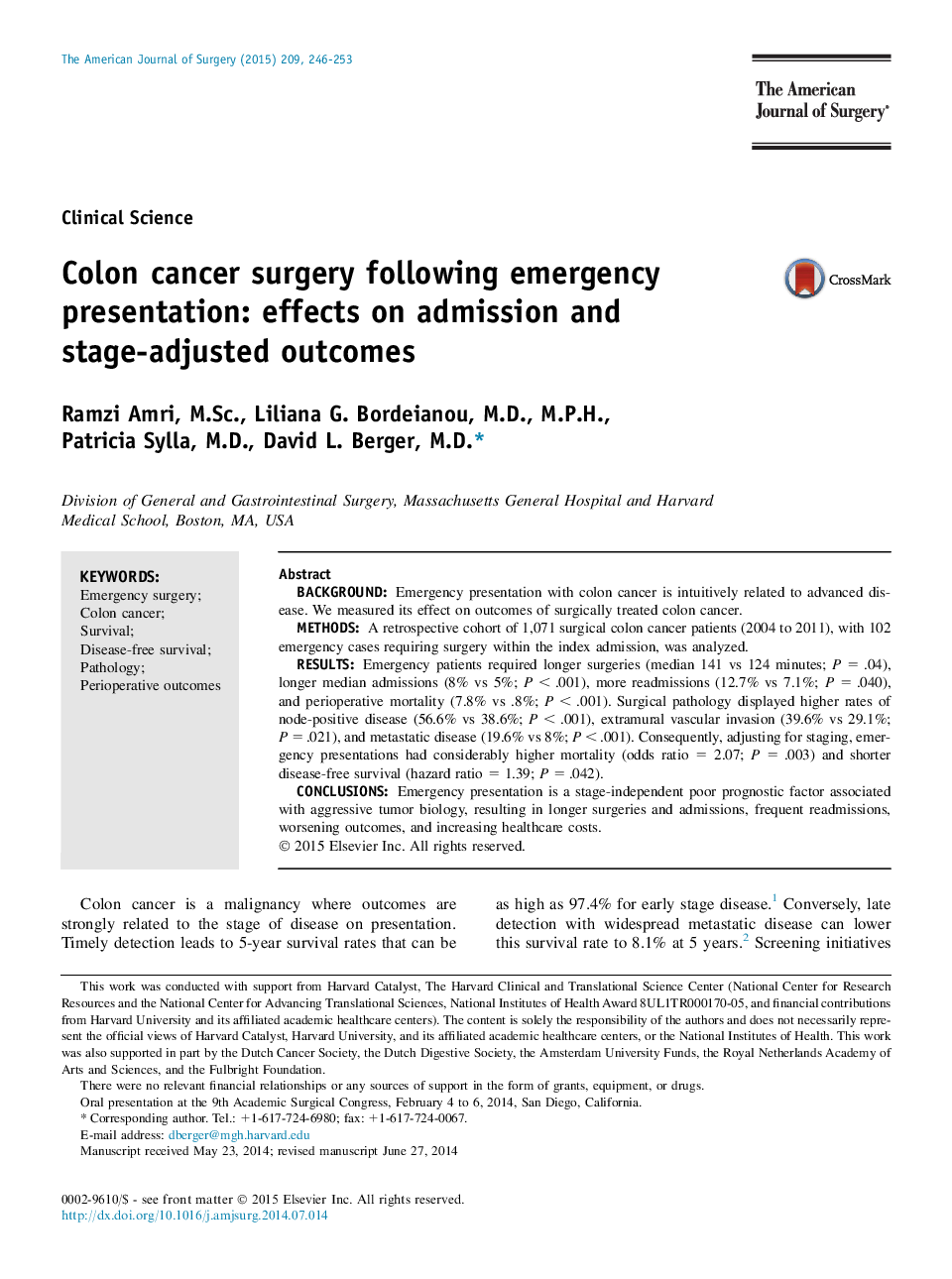| Article ID | Journal | Published Year | Pages | File Type |
|---|---|---|---|---|
| 4278592 | The American Journal of Surgery | 2015 | 8 Pages |
•We measured the impact of emergency presentation on outcomes of surgically treated colon cancer.•Our retrospective cohort of 1,071 patients (2004 to 2011) included 102 emergency cases.•Emergency patients had higher rates of complicated admissions and readmissions.•Emergency patients had considerably higher stage-adjusted mortality and recurrence rates.•Emergency presentation is a stage-independent poor prognostic factor in colon cancer.
BackgroundEmergency presentation with colon cancer is intuitively related to advanced disease. We measured its effect on outcomes of surgically treated colon cancer.MethodsA retrospective cohort of 1,071 surgical colon cancer patients (2004 to 2011), with 102 emergency cases requiring surgery within the index admission, was analyzed.ResultsEmergency patients required longer surgeries (median 141 vs 124 minutes; P = .04), longer median admissions (8% vs 5%; P < .001), more readmissions (12.7% vs 7.1%; P = .040), and perioperative mortality (7.8% vs .8%; P < .001). Surgical pathology displayed higher rates of node-positive disease (56.6% vs 38.6%; P < .001), extramural vascular invasion (39.6% vs 29.1%; P = .021), and metastatic disease (19.6% vs 8%; P < .001). Consequently, adjusting for staging, emergency presentations had considerably higher mortality (odds ratio = 2.07; P = .003) and shorter disease-free survival (hazard ratio = 1.39; P = .042).ConclusionsEmergency presentation is a stage-independent poor prognostic factor associated with aggressive tumor biology, resulting in longer surgeries and admissions, frequent readmissions, worsening outcomes, and increasing healthcare costs.
